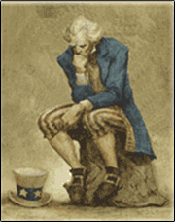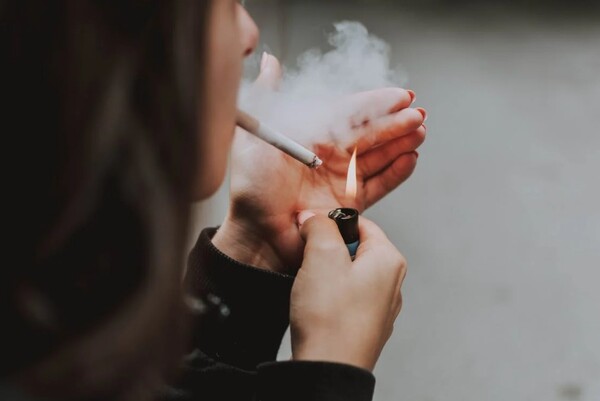
(function(d, s, id) { var js, fjs = d.getElementsByTagName(s)[0]; if (d.getElementById(id)) return; js = d.createElement(s); js.id = id; js.src = “https://connect.facebook.net/en_US/sdk.js#xfbml=1&version=v3.0”; fjs.parentNode.insertBefore(js, fjs); }(document, ‘script’, ‘facebook-jssdk’)); –>
–>
November 21, 2023
In the early 2000s, entertainers Penn and Teller had a show called Bullsh*t! that aired on Showtime, in which the iconic duo apply their sense of humor and libertarian sensibilities to butcher lots of sacred cows.
‘); googletag.cmd.push(function () { googletag.display(‘div-gpt-ad-1609268089992-0’); }); document.write(”); googletag.cmd.push(function() { googletag.pubads().addEventListener(‘slotRenderEnded’, function(event) { if (event.slot.getSlotElementId() == “div-hre-Americanthinker—New-3028”) { googletag.display(“div-hre-Americanthinker—New-3028”); } }); }); }
In recently revisiting some episodes of the show that I enjoyed back then, one moment, in particular, contained a brief bit of what can only be described as the purest prophecy.
This particular episode from 2003 covered the manufactured health panic over secondhand smoke, and the crusaders who used false “science” to ban smoking in restaurants and bars in New York City, which, as we now know, was the launchpad for similar smoking bans that swept the nation.
The fact that cigarette smoke is unpleasant to many people was not a reasonable argument for the government to impose smoking bans in establishments owned and visited by free citizens. Any bar or restaurant, at that time, could choose to allow or prohibit smoking in its establishment. The strength of the argument in favor of smoking bans was not rooted in logic, profitability, or liberty, but solely predicated on the idea that secondhand smoke was harmful to the passive customers and employees.
‘); googletag.cmd.push(function () { googletag.display(‘div-gpt-ad-1609270365559-0’); }); document.write(”); googletag.cmd.push(function() { googletag.pubads().addEventListener(‘slotRenderEnded’, function(event) { if (event.slot.getSlotElementId() == “div-hre-Americanthinker—New-3035”) { googletag.display(“div-hre-Americanthinker—New-3035”); } }); }); }
Anyone visiting or working in such an establishment would have chosen to be there, of course. But that didn’t matter. It was the government’s job to protect those workers and customers from themselves and one another, they argued, from the “consensus” understanding of the dangers of secondhand smoke.
One crusader for the cause said that nearly everyone agreed that secondhand smoke causes cancer, including the American Lung Association, the American Heart Association, and the American Cancer Society. The problem, as the show points out, is that they were all basing that conclusion upon the same flawed 1993 Environmental Protection Agency study that suggested that up to 3,000 people per year die from secondhand smoke. In 1998, a court rebuked that study, saying that it “cherry-picked” its data and “deviated from acceptable scientific procedure” to “ensure a pre-ordained outcome.”
Also in 1998, a study by the World Health Organization reached the unequivocal conclusion that its “results indicated no association between childhood exposure to ETS (environmental tobacco smoke) and lung cancer risk” and that the risk of cancer from secondhand smoke among adults was “not statistically significant.” The problem was that those conclusions were buried in the report’s findings. Most people didn’t read beyond the press release headline, which made a claim that is directly refuted by the findings of the study it was directing the public toward: “PASSIVE SMOKING DOES CAUSE LUNG CANCER, DO NOT LET THEM FOOL YOU.”
In short, as then–talk show host Larry Elder says on the show:
They lied. They lied to us. They overestimated, ignored their own findings, ignored their own standards of significant risk in order to reach a politically arrived at conclusion. They lied.
There were, for most people living and voting at that time, unforeseen consequences to allowing legislators to outlaw things that some people don’t like, based upon the “scientific” reasoning of shadowy and dishonest public health organizations. But there were some prescient souls who saw the danger in allowing the government this kind of power, and a couple of them happened to be interviewed in a New York City bar for this episode.
‘); googletag.cmd.push(function () { googletag.display(‘div-gpt-ad-1609268078422-0’); }); document.write(”); googletag.cmd.push(function() { googletag.pubads().addEventListener(‘slotRenderEnded’, function(event) { if (event.slot.getSlotElementId() == “div-hre-Americanthinker—New-3027”) { googletag.display(“div-hre-Americanthinker—New-3027”); } }); }); } if (publir_show_ads) { document.write(“
As one cigar-smoking gentleman tells the camera crew, “Should they stop us from eating cake because America is an obese society?”
At that time, that was an absurd thought. But just inside a decade from that episode’s airing, Mayor Nanny Bloomberg was hard at work outlawing sugary drinks sold in anything larger than a 16-ounce container on the grounds that six of ten New Yorkers were obese, with the media cheering on the effort. Thankfully, his efforts were struck down by a Manhattan judge, but as Rick Berman of the Center for Consumer Freedom warned of threats like Nanny Bloomberg’s ban, “[i]f you can dictate the size of drinks … you can dictate the size of a slice of pie … the list is only restricted by your imagination.”
New Yorkers would later discover that government tyrants have big imaginations when it comes to edicts around public health. They would come to find out that not only did the government believe that it has the authority to tell you how wide your slice of pie in a restaurant can be, but it has the authority to demand that you can’t have any pie in a restaurant at all. “No pie for you!” said New York’s pie Nazi, Mayor Andrew Cuomo, in 2020. No bagels or burgers or pizza, either, for that matter. You just couldn’t go to a restaurant at all, for your own good.
This brings me back to a random old man being interviewed on that Penn and Teller show at that New York bar, nearly 20 years before, who profoundly prophesied the soul-strangling and liberty-crushing madness that Americans endured in 2020. “When fascism comes to America,” he said, “it will arrive with a white coat and a stethoscope.”
The point is, the COVID tyranny did not happen in a vacuum, and the government didn’t learn that it had such power overnight. As this man knew, and we should recognize now, losing something as seemingly trivial for most people as the right to smoke in a bar was a monumental loss for individual liberty that would directly lead to the kind of tyranny that we later experienced.
We didn’t push back against the government’s fabrication of data to construct a narrative presenting secondhand smoke as a substantial cancer risk, because most people didn’t smoke, and they would prefer not to endure smoke in bars to fighting for their fellow citizens’ right to liberty. But in doing so, we accepted that it was appropriate for the government to limit individual liberty on the basis of its health prescriptions, and what’s more, the tyrants learned that they could invent the reasons for doing it by hiding behind studies that their agencies created and marketed, and that the hoi polloi supposedly wouldn’t understand.
Just like with secondhand smoke, myriad government agencies acted as one organ in 2020 to distribute the message that school lockdowns, economic shutdowns, silly cloth masks, and mandates to inject a hastily concocted drug were the only ways we could stay safe from COVID-19. You had to be saved from yourselves and your fellow citizens who did not choose to follow the state-approved guidance.
We now know that precisely none of that was ever true. And not only did we all get COVID anyway, but we suffered incomprehensible collateral damage to our economy, our children, and our national psyche. And what Larry Elder said of the government push to exaggerate the risk of secondhand smoke twenty years ago equally applies to the government’s push to exaggerate the risk of COVID to the vast, vast majority of Americans: “they lied” to reach a “politically arrived at conclusion.” It was never anything nobler than that.
Not only have the government agencies and myriad tyrants who are responsible for all of this never apologized, but they insist that were acting justifiably and in their correct capacity as mandated. And why would they not? We’ve never meaningfully resisted in the past decades as they’ve incrementally eroded our liberties.
Make no mistake: they’re doing the same thing right now, in states like California, where you soon won’t be able to buy a gas lawnmower or a non-electric car, to big federal initiatives, as the White House is, right now, exercising its emergency powers to ban gas appliances, all based upon “climate change” studies produced by various government agencies all acting in unison in order to reach these politically-driven desired outcomes.
There’s absolutely no reason for them to doubt that this will not work. After all, we can make do without gas mowers and stoves, just as we’ve been able to make do without smoking in bars.
Those are just trivial things. Right?

Image via Pexels.
<!–
–>
<!– if(page_width_onload <= 479) { document.write("
“); googletag.cmd.push(function() { googletag.display(‘div-gpt-ad-1345489840937-4’); }); } –> If you experience technical problems, please write to [email protected]
FOLLOW US ON
<!–
–>
<!– _qoptions={ qacct:”p-9bKF-NgTuSFM6″ }; ![]() –> <!—-> <!– var addthis_share = { email_template: “new_template” } –>
–> <!—-> <!– var addthis_share = { email_template: “new_template” } –>





